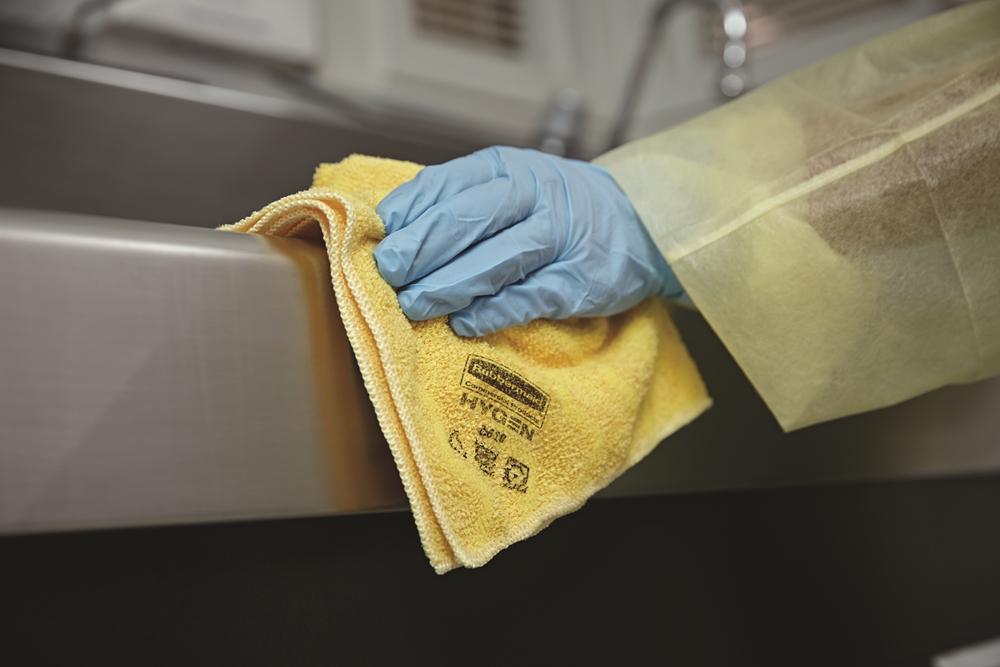
Deep cleaning has quickly become an essential part of the conversation at businesses across the world. As the COVID-19 pandemic forced state governments to send public spaces into lockdown, many were wondering how businesses would ever be able to open again. However, the response from various industries has once again proved the old adage that necessity is the mother of invention. Experts across government and business organisations have made serious efforts toward developing new cleaning techniques and policies to limit the spread of the virus and protect public health. Deep cleaning procedures go beyond traditional cleaning tasks to eliminate the potential for the virus to spread through contact with contaminated surfaces. It is an important step in limiting community spread and eventually eradicating the novel coronavirus.
What is the definition of deep cleaning?
It's important to understand that there is no common definition of deep cleaning. It is not a scientific term. Every organisation may have a unique way of differentiating between its general cleaning practises and its deep cleaning services. However, there are enough commonalities between various methodologies that it's possible to describe deep cleaning with some degree of specificity. First, consider what general cleaning entails: Wiping down surfaces, cleaning windows, sanitising areas that come into contact with consumables, and sweeping, mopping and vacuuming floors. Deep cleaning, on the other hand, is more disruptive. Typically, cleaning professionals conduct deep cleaning activities overnight or on the weekend. They may use stronger chemicals that need to clear out of a room before it can be occupied again. Likewise, they may scrub carpets, which then need time to dry. Disinfection services take things a step further. In this case, cleaning staff will wear personal protective equipment (PPE) and use specialised tools such as ultra-low volume (ULV) foggers that disperse chemical agents, killing viruses and bacteria. In extreme cases, cleaning staff may turn their attention to the building's heating and air conditioning systems. The vents in a building are typically only cleaned every five to 10 years. Cleaning air intakes and replacing filters is extremely time-consuming and costly, but it can create a safer indoor environment and improve air quality.
Does deep cleaning fully remove viruses?
No cleaning system is 100% perfect, but deep cleaning procedures can add a layer of safety that general cleaning practises can't offer. For instance, ULV foggers can spread virus-killing chemicals further than traditional cleaning tools. However, it is possible to deeply clean indoor environments with the equipment typically found on a housekeeper's cart. The key difference is that deep cleaning services are much more meticulous in their attention to detail. At the end of the day, there is no such thing as a permanent cleaning solution. After the cleaning crew packs up and goes home, people will enter the environment again, touch surfaces and breathe into the air. If someone with COVID-19 enters the room immediately after the cleaning crew leaves, he or she could potentially spread the virus through surface contact. That's why it's still important for building occupants to follow hand-washing and social distancing best practises.
What products are needed for deep cleaning?
Having the right cleaning equipment enhances the effectiveness of deep cleaning practises. For example, disposable microfibre cloths eliminate 99.9% of microbes by removing the food sources of live pathogens. Even support equipment, such as high-capacity housekeeping carts, play their part by reducing the number of times cleaning staff need to revisit supply closets throughout the day. Fewer trips means fewer opportunities for inadvertently coming into contact with others. Deep cleaning involves more frequent and thorough cleaning activities, which means durability matters. Cleaning products need to withstand heavy use. Ultimately, deep cleaning is just one piece of the effort against contagious diseases. Businesses need robust policies and protocols for keeping building occupants safe and healthy. In addition to implementing strict cleaning practises, businesses must also encourage occupants and visitors to follow government guidance for reducing the spread of viral infection. With the right tools and equipment, businesses can do their part to reduce and stop the spread of dangerous viruses like the one that causes COVID-19. To learn more, visit the Rubbermaid Commercial Products website today.